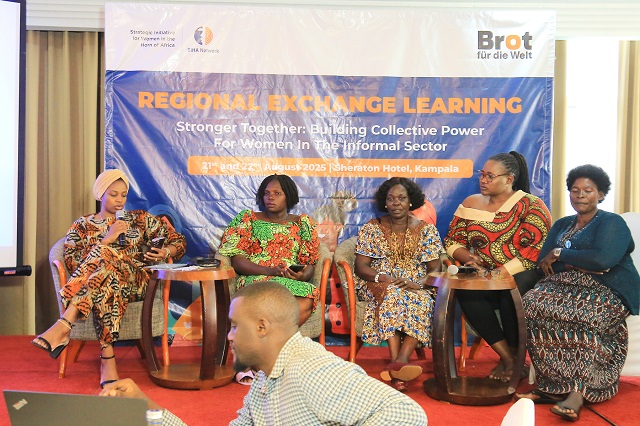
Women market vendors in Arua City, who form the backbone of local food supply and household economies, are calling for urgent reforms to address unsafe working conditions, economic exclusion, and poor governance in markets.
A new study by the Strategic Initiative for Women in the Horn of Africa (SIHA) Network, covering nine markets in Arua, paints a stark picture of daily risks faced by women. The findings show that 62 percent of vendors have experienced physical or psychological harassment, while 17.8 percent reported sexually suggestive gestures and 11.8 percent received explicit comments. Yet only 9 percent of cases were reported, with many women fearing retaliation or distrusting authorities.
The study found that 88 percent of women vendors lack protective stalls, with inadequate sanitation and poor waste management creating constant health hazards. Women with disabilities remain largely excluded, with only Arua Main Market offering basic accessibility.
“This situation is unacceptable,” said Hala Alkarib, SIHA Network’s Regional Director. “No woman should live in dread, whether walking the streets or simply working to support her family. Women vendors deserve social and economic protection, alongside access to justice.”
The report highlights financial exclusion as another pressing challenge. Many vendors rely on costly informal lenders, as public financing schemes like the Parish Development Model and Emyooga remain out of reach due to bureaucratic bottlenecks and designs ill-suited to market realities.
SIHA urged Arua City Council to prioritize market safety by upgrading infrastructure such as drainage, lighting, toilets, and stalls, while also establishing reporting desks for survivors of violence and ensuring women’s representation in governance. The report also called on national ministries to enforce gender and labor laws, expand access to healthcare and legal aid, and reform credit schemes to become more gender responsive.
Despite the challenges, some women have turned vending into a path for resilience and leadership. Hon. Gloria Teddy Yako, Speaker of Arua City, reflected on her own journey: “As a woman market vendor, I have been able to feed my family, pay school fees, and even support one of my children to pursue a PhD. With support from SIHA, I trained in leadership and advocacy, and today I serve as City Speaker. Women vendors are sustaining families and driving economies. With the right investment, we can also become leaders and decision-makers.”
The findings were shared during a Regional Learning Exchange in Kampala, organized by SIHA with support from Brot für die Welt, drawing participants from Uganda, Ethiopia, Somalia, South Sudan, and Sudan.
Uganda’s informal markets remain lifelines for millions of households, but for women vendors, they are also sites of exclusion and exploitation. Their message from Arua was clear: they sustain families and economies, but without urgent reforms, their safety and voices remain overlooked.